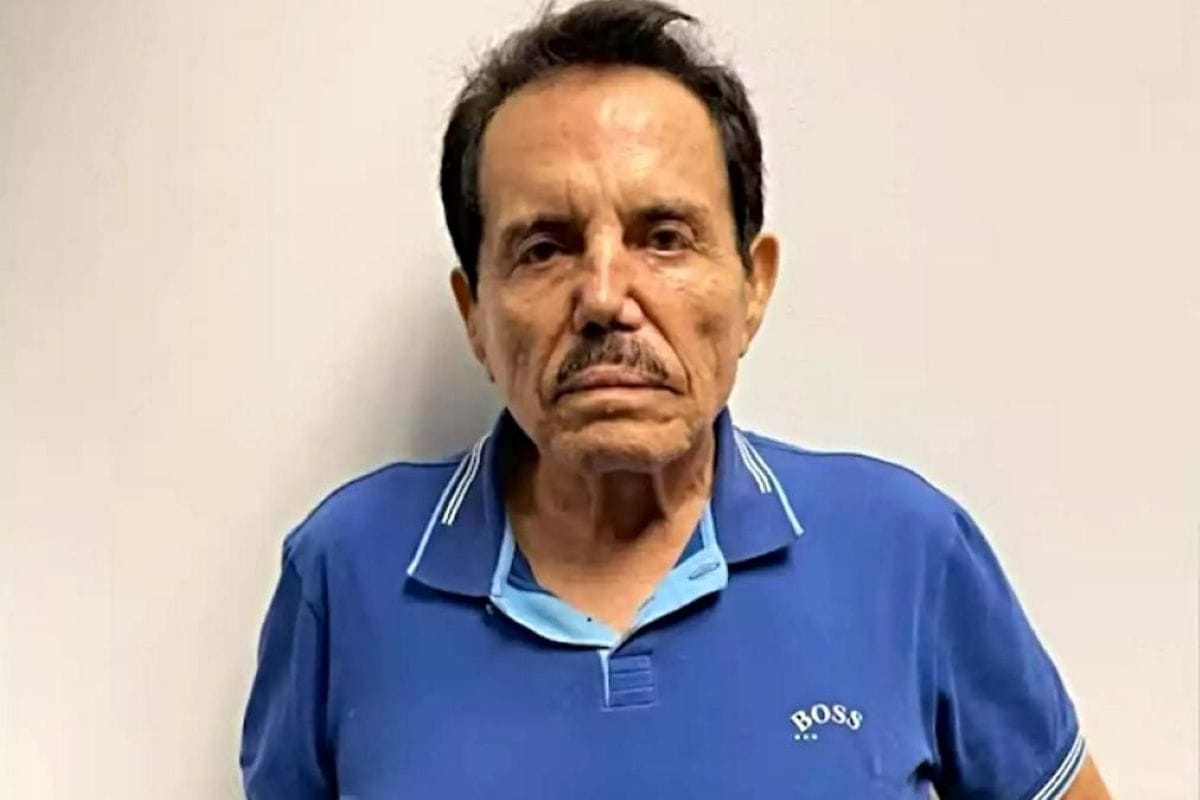Judges Blast Prosecutors Over Botched Drug Lord Kidnapping Case
Mexican judges and magistrates refute the Attorney General's Office (FGR) statement that a federal judge in Culiacán, Sinaloa, refused to hear the case against Joaquín Guzmán López, son of El Chapo, for allegedly kidnapping Ismael "El Mayo" Zambada.

In a dramatic turn of events, federal judges and magistrates have fiercely refuted allegations made by the Attorney General’s Office (FGR), slamming its portrayal of events in the ongoing legal battle involving Joaquín Guzmán López, son of the infamous drug kingpin Joaquín 'El Chapo' Guzmán.
The FGR had claimed that a federal judge in Culiacán, Sinaloa, refused to hear a case against Guzmán López, who stands accused of the high-profile kidnapping of cartel leader Ismael "El Mayo" Zambada, as well as treason. However, judges from the Federal Judicial Branch (PJF) have now hit back, accusing the FGR of grossly misrepresenting the facts.
During a heated press conference on Monday, Circuit Magistrate Juan José Olvera López categorically denied the FGR’s claims. "What is not correct is to say that the judge rejected the arrest warrant. The judge did not speak out. That's clear," Olvera declared, firmly placing the blame on the federal prosecutor. According to the magistrate, it was the prosecutor, not the judge, who withdrew the charge midway through the hearing—an admission of their own missteps in building the case.
Prosecutor's Blunder Sparks Controversy
This new twist in the saga emerged during the very first morning conference of judges and magistrates at the Revolución 1508 Building of the Federal Judicial Branch. Magistrate Olvera López took the opportunity to set the record straight after the FGR’s explosive press release on Sunday. The release, issued as statement 536, had alleged that the judge outright refused to consider the arrest of Guzmán López, sparking confusion and outrage.
The FGR had stated, "Given that there is a situation of rejection by a federal judge in Culiacán to hear and determine the arrest of those responsible, the Federal Public Prosecutor’s Office will present in the next few days, before an alternative judge, all the evidence and proceedings that are appropriate.”
But Judge Olvera was having none of it. Addressing reporters, he explained that the prosecutor's decision to withdraw the charges came after a marathon eight-hour hearing during which the judge raised concerns over several glaring inaccuracies in the prosecutor's case. "The system failed because the Prosecutor's Office did not bring a case that could result in an arrest warrant," he said. "And the Prosecutor's Office, with professionalism in the courtroom, said, 'I withdraw my case and take it with me.'"
Legal Maneuvering or Desperation?
In what appears to be a mix of legal maneuvering and outright desperation, the prosecutor's sudden retreat from the case has raised eyebrows across the legal community. The case had been expected to lead to an arrest warrant for Guzmán López, but now, it seems the FGR will have to regroup and re-present its evidence, possibly in front of a different judge.
Judge Olvera stressed that what transpired is not unusual in such high-stakes cases. Prosecutors frequently withdraw charges when they sense that their case may be on shaky ground. However, the magistrate was quick to point out that contrary to the FGR’s statement, the judge never rejected the case outright, nor did he deny the arrest warrant.
"This is what the prosecutor did in the courtroom," Olvera emphasized. "Judges do not reject cases; they issue an arrest warrant or deny it. They do not reject cases." He further explained that the prosecutor’s decision to “take all his marbles and withdraw” was entirely voluntary, leaving the judge without the opportunity to make a formal ruling.
The timing and tone of the FGR's public statement have led some to speculate that the office is attempting to save face after its legal missteps became evident. In the statement, the FGR alluded to presenting the case to an alternative judge, but Olvera made it clear that it’s up to the prosecutor to decide where and when they will re-file the case.
"The Prosecutor’s Office says it went before a judge, and that the federal judge based in Culiacán rejected this claim. But what actually happened is that, during the long oral hearing, the judge asked some questions about certain inaccuracies, and in the end, the prosecutor decided to withdraw the accusation," explained Olvera, shedding light on the courtroom drama that unfolded.
High-Stakes Case with Global Implications
The case against Guzmán López, also known as one of the “Los Chapitos” and heir to his father's notorious Sinaloa cartel, has drawn significant media attention both in Mexico and abroad. Allegations of involvement in kidnapping, drug trafficking, and cartel violence have made the younger Guzmán a top target for authorities. The case is further complicated by the involvement of Ismael “El Mayo” Zambada, another prominent cartel figure whose alleged kidnapping by Guzmán López has added layers of intrigue and danger to the proceedings.
With the FGR now forced to regroup, questions are swirling around whether the prosecutor’s office can successfully repackage its case or whether it will continue to falter under the weight of inconsistencies and legal blunders.
For the FGR, this latest misstep could prove damaging, especially as it comes in the wake of increased public scrutiny over its handling of high-profile cartel cases. In a nation where public trust in the legal system is already fragile, the apparent bungling of such a significant case could further erode confidence in Mexico’s judicial institutions.
As the legal chess game continues to play out, all eyes will remain on the FGR’s next move. Will they present a stronger case to a new judge, or will Guzmán López continue to evade justice?
For now, Magistrate Olvera has made one thing abundantly clear: "Judges do not reject cases. Judges issue arrest warrants or deny them. But they do not reject cases.” The ball is firmly back in the prosecutor’s court, and the stakes couldn’t be higher.




